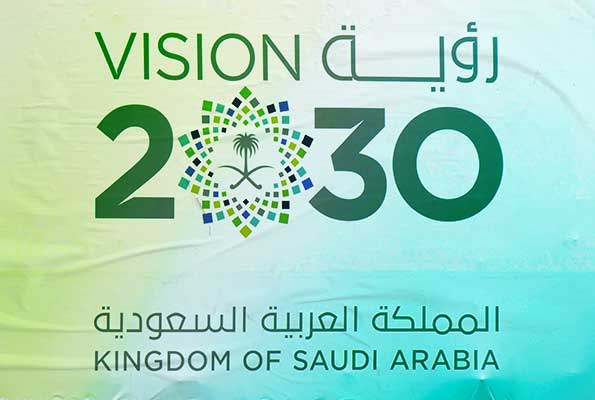The ambitious ‘Vision 2030’ program, which aims to diversify Saudi’s economy and lessen its reliance on oil, is revolutionizing the telecom industry. The goal of the strategy, which Crown Prince Mohammed bin Salman presented in 2016, is to forge an ambitious country, a strong economy, and a lively society. Being a major enabler of digital transformation, the telecom industry is essential to attaining these goals.
The ‘Vision 2030’ plan acknowledges the role that the telecom industry plays in boosting living standards and stimulating economic growth. It intends to boost competition, raise service standards, and increase the sector’s GDP contribution. The plan also aims to use the telecom industry as a springboard for the digital transformation of other industries including healthcare, education, and tourism.
The Saudi government has made several moves to put the ‘Vision 2030’ plan into effect in the telecom industry. The telecom industry has been liberalized, allowing international firms to participate and compete. As a result, there is more competition, which benefits customers by bringing down costs and improving services.
The country has also announced an investment of USD 51 billion (SAR 120 billion) across eight companies as part of the Shareek program. Shareek was launched in March 2021 to support large companies in helping the Kingdom’s economy achieve the target GDP, set under ‘Vision 2030’.
Shareek seeks to unlock USD 1.3 trillion (SAR 5 trillion) in the national private sector investments in line with ‘Vision 2030’, thereby ensuring that the Kingdom’s private sector increases its GDP contribution to 65% by 2030.
The program is also helping eligible companies accelerate planned projects and identify new partnerships and investment opportunities with the Saudi government’s support.
The USD 51 billion amount is expected to be spent by the companies by 2030 to achieve over USD 124 billion (SAR 466.83 billion) in GDP growth by 2040 and create over 64,000 local jobs, as per the reports.
Additionally, the government has made significant investments in communications infrastructure, including the introduction of 5G networks. As a result, not only has the quality of telecom services increased, but new services like the Internet of Things (IoT) and artificial intelligence (AI) have also been made possible.
The effects of ‘Vision 2030’ may already be seen in the telecom industry. The Communications and Information Technology Commission (CITC) reports that after the introduction of ‘Vision 2030’, the GDP contribution of the telecom sector has greatly increased. Because services are now more affordable and of higher quality, there are more telecom subscribers. Furthermore, Saudi Arabia has emerged as one of the Middle East’s top nations in terms of the speed and coverage of 5G networks.
The telecom industry is also essential in helping other industries to gain from the digital transformation. For instance, telemedicine services are offered by the healthcare industry employing telecom technologies, allowing patients to visit doctors at a distance.
Telecom technologies are being used by the education sector to deliver online education, allowing students to learn from any location. The provision of digital services by the tourism industry employing telecom technologies improves the visitor experience.
The reform of the telecom industry under ‘Vision 2030’ is not without difficulties, though. The quick rate of technological advancement necessitates ongoing investments in infrastructure and skill-building. Businesses must innovate and differentiate their services as a result of the growing competition. Concerns about cybersecurity and data privacy are also raised due to the rising reliance on telecom services.
Despite these difficulties, the telecom industry appears to have a bright future under ‘Vision 2030’. The government’s dedication to digital transformation, the rise in demand for telecom services, and the potential of cutting-edge technologies like 5G, IoT, and AI all contribute to the telecom sector’s expansion. Additionally, the telecom industry has the chance to support the bigger goals of Vision 2030 because it plays a significant role in enabling digital transformation.
In conclusion, the telecom industry is evolving as a result of Saudi Arabia’s ‘Vision 2030’, becoming a crucial engine of economic growth and digital transformation. In addition to the telecom industry, other industries that are gaining from digital transformation can also see the effects of this transition. Despite these difficulties, the telecom industry appears to have a bright future under ‘Vision 2030’.



